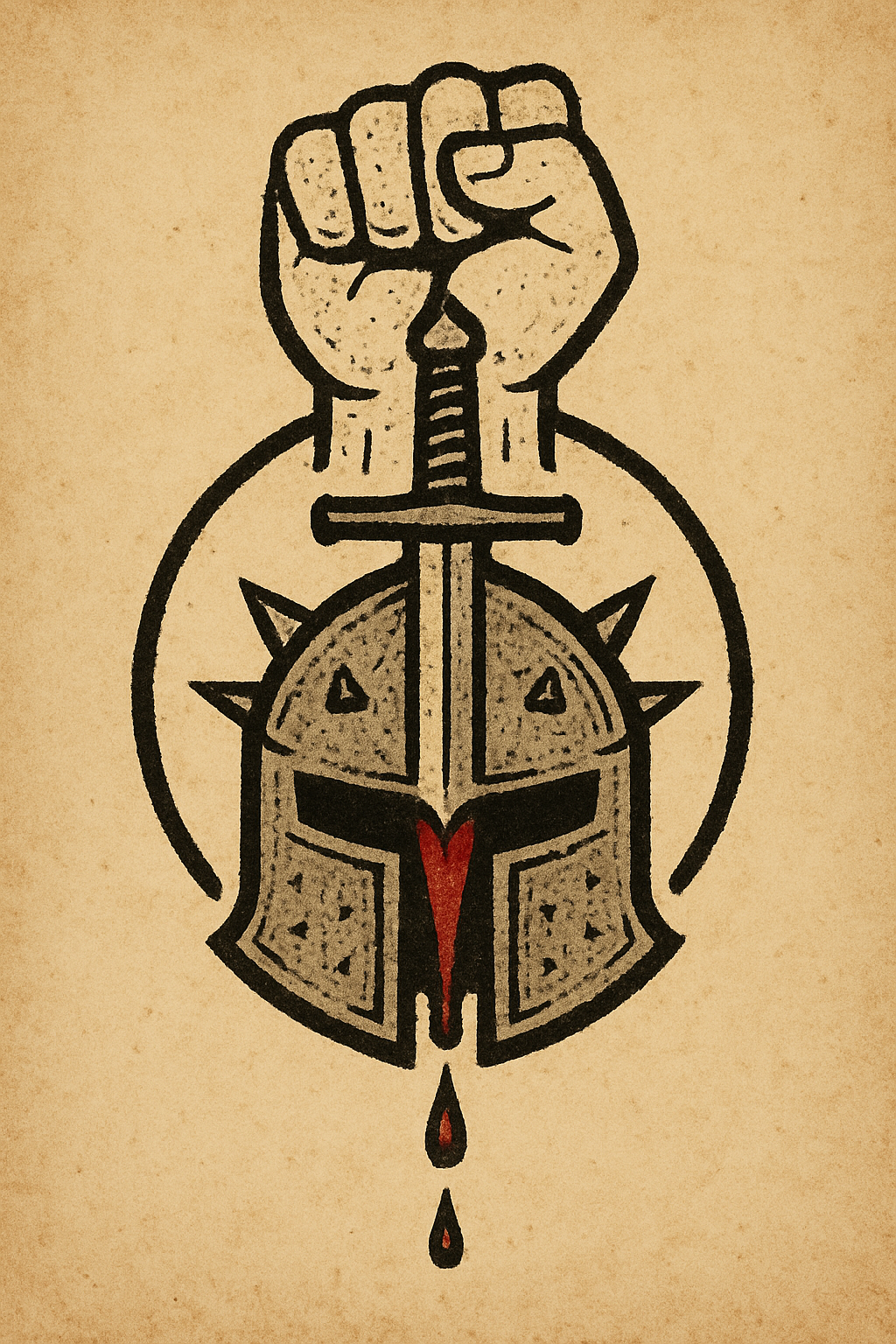Klavik
Obedience is strength. Resistance is ash.
Description of the Church
The Church of Klavik, known as The Crimson Ascendancy, is a brutal, disciplined order devoted to domination, conquest, and the philosophy of strength through fear. Temples resemble fortresses or citadels—often militarized and isolated. Klavik’s faithful believe that power is not only the right to rule, but the divine mandate to crush weakness.
Unlike Gryplyn or Valistal, Klavik’s worship is not about honor or bravery—it is about victory, supremacy, and control. Obedience is sacred, hierarchy is law, and rebellion is heresy. In this faith, compassion is a tool for manipulation, not virtue.
While outlawed in many lands, the Church persists in secret strongholds, remote territories, and among warlords who rise in Klavik’s name.
Core Beliefs
- Power is divine, and the strong are meant to rule the weak.
- Fear is a sacred tool, more reliable than loyalty.
- War is the true crucible of worth.
- Mercy is deception, and obedience is purity.
- Order imposed by strength is better than chaos born of freedom.
Religious Structure
Highly hierarchical, rigid, and authoritarian.
- The Voice of Iron – The supreme war-priest or commander, who rules through force and vision.
- Crimson Fists – Generals and war-chaplains who lead Klavik’s armies and cults.
- Scourge-Priests – Clergy who indoctrinate new recruits, punish disobedience, and administer brutal rites.
- Executioners of Faith – Enforcers and field agents, often masked and feared.
- Chainborn – Novices trained in obedience through hardship and pain.
Rituals and Practices
- The Rite of Submission – A brutal initiation where aspirants prove they will obey without question.
- The Chain Oath – A binding vow to serve Klavik’s will, often etched into skin or armor.
- The Purge of Dissent – A public punishment rite used to maintain control.
- Feast of Conquest – A celebration of new victories, marked by violence and trophies.
Followers
- Tyrants and conquerors, who seek divine justification for domination.
- Mercenaries and generals, especially those who reject notions of mercy or compromise.
- Fanatics, who find comfort in absolute hierarchy and control.
- Oppressed people, who turn to power to reclaim agency, often in twisted ways.
Temples
Temples are black-stone fortresses, often surrounded by training fields, execution scaffolds, and war banners.
Common features include:
- The Throne of Chains, where oaths of obedience are sworn.
- The Iron Altar, used for blood sacrifices or displays of strength.
- The Gallery of Conquest, filled with trophies from crushed enemies.
Conflict and Controversy
Despised by nearly every other Church, especially:
- Valistal (valor and justice),
- Hiruwen (healing),
- Gryplyn (honor),
- and Aergethyr (lawful balance).
Splits between:
- Dominionists, who favor strategic rule, and
- Annihilators, who worship destruction for its own sake.
Relationships with other gods
Central Architect: Klavik was not shaped by love or reverence, but by fear. He is the embodiment of dominance—the god mortals imagined when they bowed, when they broke, when they asked why some rule while others suffer. He is the twisted reflection of justice and valor, the divine truth that power does not need permission.
Relationship with Vohrmazh (hunger, anti-magic): Quiet alliance. Klavik conquers lands; Vohrmazh devours meaning. Together, they represent erasure through control—one of body, the other of soul. Their cults rarely work together, but when they do, cities fall in silence.
Rivalry with Valistal (chivalry, justice): Mortal enemies. Valistal wields a blade to protect; Klavik wields it to command. Their battles are legendary—on the fields of mortals and in the hearts of rulers. Each believes he holds the truest form of righteous strength.

Symbol: A spiked helm with a bleeding sword through its eye slit, enclosed by a clenched fist.
Meaning: Domination, fear, and the sanctity of imposed strength.
Areas of Concern: War, discord, oppression, tyranny
Edicts: Command or be commanded. Seize power by strength or cunning. Crush resistance swiftly. Use fear as your shield.
Anathema: Showing mercy or promoting freedom
Divine Attribute: Strength or charisma
Devotee Benefits:
Cleric Spells: 1st: charm, 4th: suggestion, 6th: mislead
Divine Font: Harm
Divine Sanctification: Must choose unholy
Divine Skill: Deception
Domains: Destruction, pain, trickery, tyranny, Alternate: strength
Favored Weapon: Greataxe



Comments